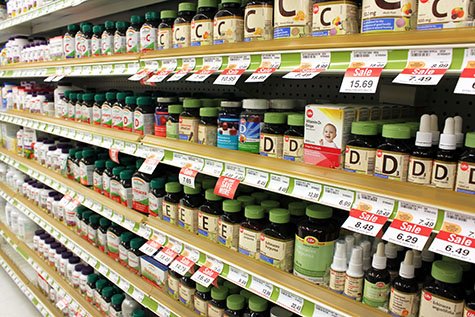When my patients ask about buying a supplement suggested in the office, a LONG, passionate conversation ensues! But don’t worry, I’ll save you time and boil it down to 5 main rules on how to buy supplements.
First a little background. In 1994, the “Dietary Supplement Health and Education Act” (DSHEA) was signed giving more protection to consumers. Before DSHEA, anyone could make something in their bathtub and put it in a bottle and sell it at their local health food store. All vitamins, herbs, fish oils, enzymes, hormones or hormone-like substances and all mixtures of these are included in the Act and are regulated under food good manufacturing processes. Feel confident about which supplements to get by following these 5 rules of the road.
Rule #1: If a supplement doesn’t have the below information on the label as required by DSHEA, DON’T BUY IT!
All supplements must be labeled with the Latin and common name, the part of the plant that was used if it is an herbal, the structure and function if warranted, the total amount/dosage, total number of doses in the bottle and the manufacturer’s name and address.
Rule #2: If you can’t get a “Certificate of Analysis” from the company, DON’T USE THE PRODUCT!
Make certain the product you are purchasing is tested in a lab for purity and is free of contamination from pesticides, heavy metals, bacteria/fungus, etc. You can obtain a “certificate of analysis” issued by the lab who did the testing by requesting it from the manufacturer and providing the lot number and the expiration date on the product. It is customary that each manufactured batch is tested. The certificate will verify all stated label claims and will demonstrate product purity by standard scientific methods.
Rule #3: Use the same product at the same dosage that was studied in the clinical trial to get a comparable result. NOT ALL PRODUCTS ARE THE SAME!
You may have read about a certain supplement that was studied and shown effective but without data it is hard to tell whether the supplement was in fact effective. Clinical trials are set up to test effectiveness and it is important to pay attention to the supplements and dosages used in the studies.
When herbals are studied here in the U.S. or abroad, specific plant species are used in the studies and are standardized to a specific active plant ingredient. Some companies market the same plant and make the same structure or function claims, but they may use a different part of the plant that doesn’t contain the active ingredient, or they may use a different variety of the plant. Unless you use the same product at the same dosage that was studied in the clinical trial, you won’t get the same result.
Rule #4: Don’t skimp on supplements, buy the good stuff. IT MAKES A DIFFERENCE!
Don’t shop for the cheapest product. The BOGO sale is fine for shoes or t-shirts, but not for your herbals, vitamins or supplements! Think of it this way…when an active plant ingredient is standardized to a specific percentage, it costs the company additional dollars, which along with product testing, will be reflected in the price. Always consider vitamins, supplements and herbals the same as prescription medicines. In most of Europe they ARE prescriptions! They have a profound effect in the body and have to be detoxified and cleared through our livers just like prescription medicines. It’s important to use quality products that have the “real thing” in each capsule. Note: I don’t recommend buying off Amazon as there have been many reports of expired or repackaged products being sold there.
Rule #5: Be wary of false statements. (i.e., don’t pick a supplement because it claims on the bottle to cure everything or treat a specific disease)
Many supplement companies may put false statements on the bottle to try to encourage people to buy the supplement. These statements may not be based on data, studies or facts. DSHEA helps prevent false claims from being on the label but not on printed material. Also take a look at the disclaimer. If it is a lengthy confusing disclaimer, it likely is trying to hide something! Check out the natural medicine comprehensive database for further information.
In a nutshell, not all supplements are the same. Read the packaging and make sure you know what you are getting. Also, ask your provider for more information or recommendations.
